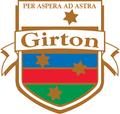From the Head

Many of us have fond memories of the final weeks of the school year mainly being about Christmas decorations for the classroom, icy poles at lunchtime and Kris Kringle’s with different friendship groups. Many of these cherished traditions endure, but as students progress through school, these fun rituals (necessarily) sit alongside academic engagement rather than being the main game. When many schools start winding down for the academic year, Girton Grammar School’s senior students will be winding up by starting their 2022 classes.
I wanted to use this week’s eLink column to reiterate the importance and value of Girton’s Early Commencement Programme (ECP), which occurs each year in the final three weeks of the school for students in Years 7 to 11.
The overall intention of the ECP is to retain student academic engagement until the last day of school. The three-week learning programme allows students to understand the curriculum requirements for the coming year so that when they commence the new academic year, they can hit the ground running. Many high achieving independent schools run an ECP for their VCE students, but at Girton, we run the programme from Year 7 in recognition that getting a head start on curriculum before a new school year commences is always a good idea.
From Monday, students will attend classes with their 2022 teachers and classmates. We know from experience that since introducing the ECP at Girton in 2011, students remain more switched on to their learning at a time of year when it can be challenging to keep students engaged. The ECP acts as a reset button for students and staff. Students are excited about moving into the next year level, meeting new friends and getting to know new teachers. It makes the transition to a new year level at the beginning of the following year much smoother. It gives students who are undertaking elective subjects for the first time an idea of what is in store and an opportunity to make changes if necessary.
Generally, students will complete a unit of work during ECP and be assessed either during ECP or early next year. Content covered in ECP can be included in the first semester examinations. I have often been asked whether it is reasonable to expect students to retain knowledge from ECP into the following year. My response is that students are expected to maintain knowledge from the start of the year for end-of-year examinations, and the summer holiday period is much shorter. The retention of academic content is more to do with teacher quality and student effort than any one programme.
Making the most of learning for our students is the driver for the ECP. Keeping students motivated and engaged until the last bell is essential in a school year where all 38 weeks of learning must count.
We look forward to pressing the refresh button on Monday with a Senior School ‘ECP Assembly’. And to the occasional Kris Kringle in the coming weeks.
Dr Clayton Massey
HEAD
